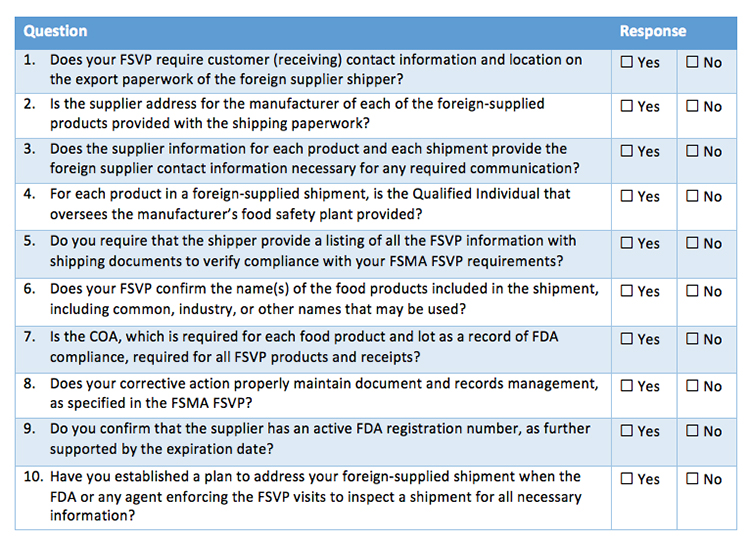As all the FSMA rules move to enforcement status, food companies must prepare to best respond to requirements and, correspondingly, to develop required programs such as the Foreign Supplier Verification Program (FSVP) rule. The FSVP requires impacted companies to document specific verification steps to satisfy regulations and meet foreign-supplied shipment information requirements. These requirements took effect on May 30, 2017 for companies importing certain food products to the United States.
How much do you know about FSVP? Test your smarts by taking the FSMA FSVP IQ Test here Ultimately, the purpose of the FSVP is to document the shipping paperwork necessary to provide evidence and verification that a foreign supplier’s food-grade product shipped to a U.S. customer meets the requirements of FSMA. A company’s FSVP may include providing an additional level of evidence that the foreign company distributes safe foreign-supplied food products to the United States, the qualification of these suppliers, verification of supplier and shipment information, and records to verify the shipment of all imported food under FSMA and food safety plans. This information provides the U.S. customer receiving the product necessary proof of compliance and a record that the foreign-supplied material meets imported food product requirements.
Self-Diagnostic Assessment Tool
The following self-diagnostic assessment tool can help organizations better determine their current state of planning when it comes to implementing and managing FSMA FSVP requirements. To complete your own assessment, review and compare your programs to the questions in Table I.

Get Compliance-Ready
Companies must have the appropriate systems in place to comply with FSMA FSVP requirements or face possible willful non-conformance, which can include fines and criminal penalties under FDA enforcement. The questions above will help companies identify areas to consider regarding their FSVP programs. Kestrel can also help answer questions, provide input on solutions, discuss how to better manage all your food safety requirements, and change “No” responses into “Yes” responses that promote best practices for FSMA and food safety compliance.



